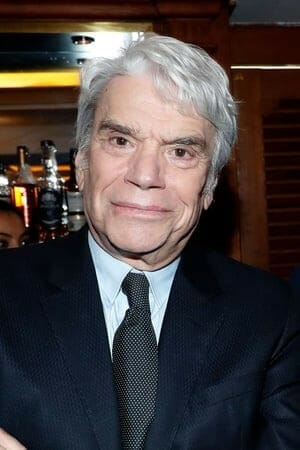Bernard Roger Tapie, a French businessman, politician, and occasional actor, singer, and TV host, was a charismatic figure who left an indelible mark on the worlds of business and sports. Born on January 26, 1943, in Paris, Tapie emerged from humble beginnings to become a renowned entrepreneur and the owner of the famous Olympique de Marseille (OM) football club. Despite his numerous achievements, Tapie’s career was not without controversy, leading to legal difficulties and a life that was always in the spotlight. In this article, we delve into the extraordinary life and career of Bernard Tapie, exploring his rise to success, legal battles, and enduring legacy.
From Rags to Riches: Tapie’s Journey
Tapie’s journey began in a working-class family in the tough northern suburb of Seine-Saint-Denis. Growing up, he had to fight his way out of adversity and make a name for himself. Despite the challenges, Tapie’s determination and entrepreneurial spirit led him to acquire bankrupt companies in the late 1970s and 1980s, kickstarting his rise to success. His first major acquisitions were paper companies Duverger and Diguet-Denis, followed by the purchase of Leclanche Wonder, a prominent battery producer. Tapie’s shrewd business acumen allowed him to turn these struggling companies around and set the stage for even greater triumphs.
The Adidas Revolution
In 1990, Tapie made a groundbreaking move by purchasing the struggling sporting brand Adidas for nearly 1.6 billion francs. The company was on the verge of bankruptcy, but Tapie’s vision and restructuring efforts breathed new life into the iconic brand. Under his leadership, manufacturing was shifted to Asia, and the distribution network underwent a complete redesign. Tapie’s innovative marketing strategies, including the recruitment of Bob Strasser, a former Nike executive, and a logo redesign, propelled Adidas back into the limelight. By 1995, Adidas was listed on the Stock Exchange with a valuation of 11 billion francs, a testament to Tapie’s ability to turn adversity into success.
Sports Triumphs: Cycling and Football
Tapie’s influence extended beyond the business world, as he ventured into the realm of sports ownership. His cycling team, La Vie Claire, achieved remarkable success, securing victory in the prestigious Tour de France twice, in 1985 and 1986. Tapie’s strategic leadership and support for talented riders like Bernard Hinault and Greg LeMond propelled La Vie Claire to the forefront of professional cycling.
However, Tapie’s most notable triumph came in the realm of football. When he took over the struggling Olympique de Marseille (OM) football club, it was a mere shadow of its former self. Through a combination of business acumen and sheer determination, Tapie transformed OM into a formidable force. Under his ownership, OM won the French championship four times consecutively and achieved the ultimate glory by winning the 1992-1993 UEFA Champions League. This historic victory made OM the first French team ever to win the prestigious European club competition.
Controversy and Legal Battles
Tapie’s success story was marred by controversy and legal difficulties. In 1993, he faced accusations of match-fixing involving a game between OM and Valenciennes. Tapie was accused of bribing a Valenciennes player to throw the match. Despite the subsequent stripping of OM’s French league championship, Tapie’s loyal fanbase stood by him, demonstrating unwavering support.
In 1994, Tapie faced criminal investigation and was eventually sentenced to two years in prison for complicity in corruption and witness tampering. However, Tapie’s resilience and ability to bounce back from setbacks were evident once again. After serving 165 days in prison, he returned to the public eye, undeterred by his legal troubles.
Another significant legal battle involved Tapie’s dealings with the Credit Lyonnais bank. Tapie accused the bank of defrauding him during the sale of Adidas, leading to a lengthy legal battle that spanned from 1993 to 2008. In 2008, a judicial panel ruled in Tapie’s favor, granting him compensation of €404 million from the French Ministry of Finance. However, in a twist of fate, a French court later ordered Tapie to return the compensation with interest in 2015.
Tapie’s Ventures Beyond Business and Sports
Tapie’s multifaceted personality extended beyond the realms of business and sports. In 1995, unable to pursue his previous interests due to bankruptcy and legal restrictions, he turned to the world of film. Tapie made his acting debut in Claude Lelouch’s movie “Hommes, femmes, mode d’emploi,” starring alongside Fabrice Luchini. He also dabbled in the music industry, collaborating on a song written by Doc Gyneco titled “C’est beau la vie.”
Tapie’s journey took another artistic turn in 2000 when he made his debut as a theater actor, receiving praise for his portrayal of Randle McMurphy in “One Flew Over the Cuckoo’s Nest.” His foray into the world of theater and television continued, with appearances in theater plays and the French TV series “Valence” as a police chief.
Legacy and Impact
Bernard Tapie’s impact on French society and popular culture cannot be understated. His larger-than-life personality, combined with his rags-to-riches story, resonated with the French public. Despite his legal battles and controversies, Tapie remained a beloved figure in Marseille, with OM fans mourning his passing and remembering him as “le boss.” His entrepreneurial spirit, audacity, and determination continue to inspire generations of French entrepreneurs, athletes, and dreamers.
Bernard Tapie’s life was a testament to the power of resilience and determination. From his humble beginnings to his meteoric rise as a business tycoon and sports magnate, Tapie left an indelible mark on the worlds of business, sports, and entertainment. While his legacy is not without controversy, his achievements.






